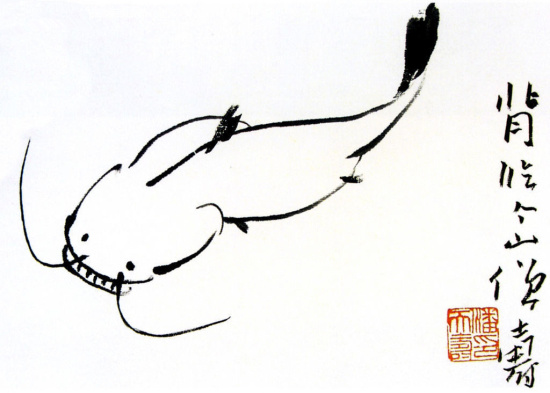Workplace Heart Sutra
Release time:
2019-10-17 14:26

catfish effect
Previously, the survival rate of sardines during transportation was very low. Later, someone discovered that if a catfish was put among the sardines, the situation would change and the survival rate would be greatly improved. What is the reason for this? It turns out that catfish will be "impatient" and swim around when they arrive in an unfamiliar environment. This undoubtedly played a stirring role for a large number of quiet sardines; The "dissident elements" were naturally very nervous and swam faster. In this way, the problem of hypoxia of sardines will be solved, and the sardines will not die.
When the work of an organization reaches a relatively stable state, it often means that the enthusiasm of employees is reduced. A "harmonious" group is not necessarily a high-efficiency group. At this time, the "catfish effect" will play a very good "medical" effect. If there is always a "catfish" figure in an organization, it will undoubtedly activate the workforce and improve work performance. The "catfish effect" is one of the effective measures used by corporate leaders to stimulate the vitality of employees. It is manifested in two aspects. One is that the enterprise must constantly replenish fresh blood, introduce those energetic and quick-thinking young new forces into the workforce and even the management, and bring competitive pressure to those lazy employees and bureaucrats who are self-styled and conservative. The "sardines" have a sense of survival and a desire to compete and win. The second is to continuously introduce new technologies, new processes, new equipment, and new management concepts, so that enterprises can fight against the storm in the market tide and enhance their ability to survive and adapt. Regarding the application of the catfish effect, there are currently applications of the catfish effect in human resource management and leadership activities, including the establishment of competition mechanisms, the use of capable people, the transformation of leadership styles, and so on. But the author believes that the analysis and application of the catfish effect goes far beyond that. Different perspectives for thinking about problems lead to different methods of discovering and solving problems.
28th law
The 28th law (Baredo's law): Italian economist Paredo at the end of the 19th century and the beginning of the 20th century believed that in any group of things, the most important only accounts for a small part of it, about 20%, and the remaining 80% although It is the majority, but it is secondary. About 80% of society's wealth is concentrated in the hands of 20% of people, while 80% of people only own 20% of society's wealth. This statistical imbalance is ubiquitous in society, economy and life. This is the 80/20 rule.
The 80/20 rule tells us not to analyze, handle and view problems equally, but to seize the key few in business operation and management; to find out those key factors that can bring 80% of the company's profits but only account for 20% of the total. Customers, strengthen services to achieve twice the result with half the effort; business leaders must carefully classify and analyze work, and spend their main energy on solving major problems and grasping major projects.
20% of people succeed------------------80% of people fail
20% of people make money from the neck up -------- 80% of people make money from the neck down
20% of people think positively --------------80% of people think negatively
20% of people buy time----------------80% of people sell time
20% of people find a good employee ----------80% of people find a good job
20% of people dominate others ------------ 80% of people are dominated by others
20% of people do business ---------------- 80% of people do things
20% of people value experience -------------- 80% of people value education
20% of people think that actions have results---80% of people think that knowledge is power
20% of people do what they want to be rich --- 80% of people do what they want to do if they want to be rich
20% of people love to invest----------------80% of people love to shop
20% of people have goals ----------------- 80% of people love to think blindly
20% of people look for the answer in the question ------ 80% of the people look for the question in the answer
20% of people are looking at the long-term --------- 80% of people are only looking at the immediate
20% of people seize the opportunity --------------- 80% of people miss the opportunity
20% of people plan for the future ------------ 80% of people think about what they are doing today when they get up in the morning
20% of people act according to successful experience -------- 80% of people act according to their own wishes
20% of people do simple things----------80% of people are unwilling to do simple things
20% of people will do tomorrow's things today - 80% of people will do today's things tomorrow
How can 20% of people do it ------------ 80% of people can't do it
20% of people take notes----------------80% of people have a good memory
20% of people are influenced by successful people -------- 80% of people are influenced by failure people
20% of the people are in good condition-------------80% of the people have a bad attitude
20% of people believe that they will succeed--------------80% of people are unwilling to change the environment
20% of people always praise and encourage --------------80% of people always criticize and criticize
20% of people will persist --------------80% of people will give up
Source: Yangqi Team Editor: Yangqi People
Related News
Journey of Delicacy and Craftsmanship-Shanghai Fishery Exhibition 2023
The 17th Shanghai International Fisheries Exhibition concluded successfully today. Thank you for your strong support!
Warm congratulations! Yangqi Food joins hands with SINOMACH Hainan!
On August 18, 2023, the signing ceremony for the cooperation between Yangqi Food and SINOMACH Hainan and the unveiling ceremony of Yangqi Food (Hainan) Co., Ltd. were grandly held in the lecture hall on the third floor of the Business Center of the Cross-border E-commerce Industrial Park in Haikou Comprehensive Bonded Zone. The event was hosted by Xu Liang, deputy director of the Haikou Comprehensive Bonded Zone Management Committee, and attracted the attention of representatives from the Haikou Comprehensive Bonded Zone Management Committee, SINOMACH Hainan Development Co., Ltd., Yangqi Food (Hainan) Co., Ltd. and other parties.
Yangqi Food, a leading seafood flavor payment company, held a seafood night reception dinner at the Life Insurance Financial Center next to the Huangpu River on the 25th of this month, and participated in the three-day Shanghai Fisheries Expo from the 26th to the 28th .
Finally you are here! Yangqi Food Tmall flagship store grand opening in March
In March 2020, Yangqi Food, a well-known brand that occupies a leading position in the Weifu food industry, will officially land on Tmall, opening a new chapter in Yangqi Food's Internet B2C sales.
The 14th Shanghai International Fisheries Expo 2019
2019 Shanghai International Fishery Expo August 28-August 30 Welcome to Yangqi Food Booth W1A410 in Shanghai New International Expo Center
Japanese treasures, just like the literal meaning, are "exotic tastes". It mainly uses aquatic products as the main raw material. Through special processing, it makes full use of its unique flavor and gives it storage properties. It does not need to be processed again and can be eaten directly (including processed foods similar to land products). This is in line with general preferences. Necessities of cultural life. In the delicacies industry, a small amount of high-priced traditional processing techniques and fresh ingredients are used to mass-produce high-end delicacies and become popular delicacies that can be consumed by ordinary families. In recent years, food culture has entered the international era. In China, the birthplace of food culture, with the improvement of consumption levels, consumption



